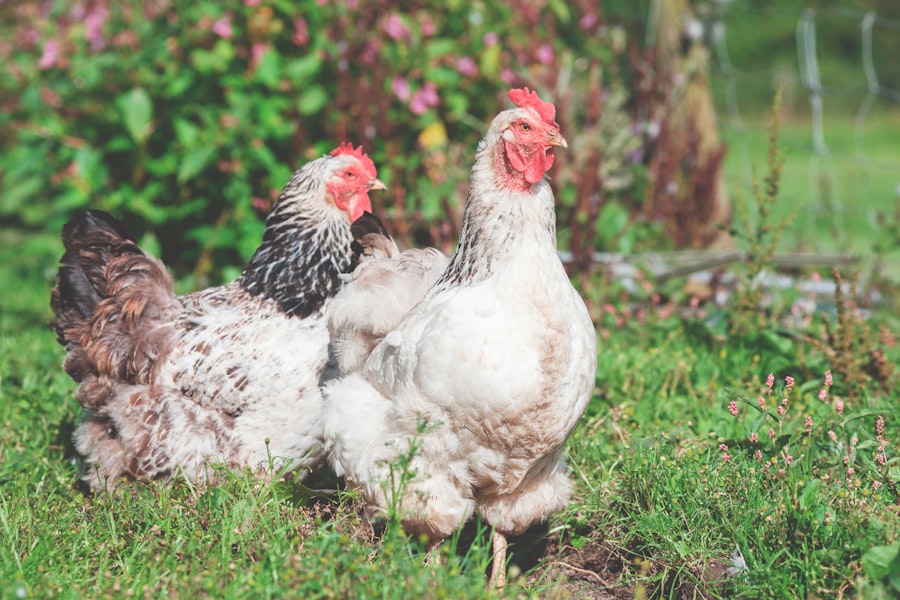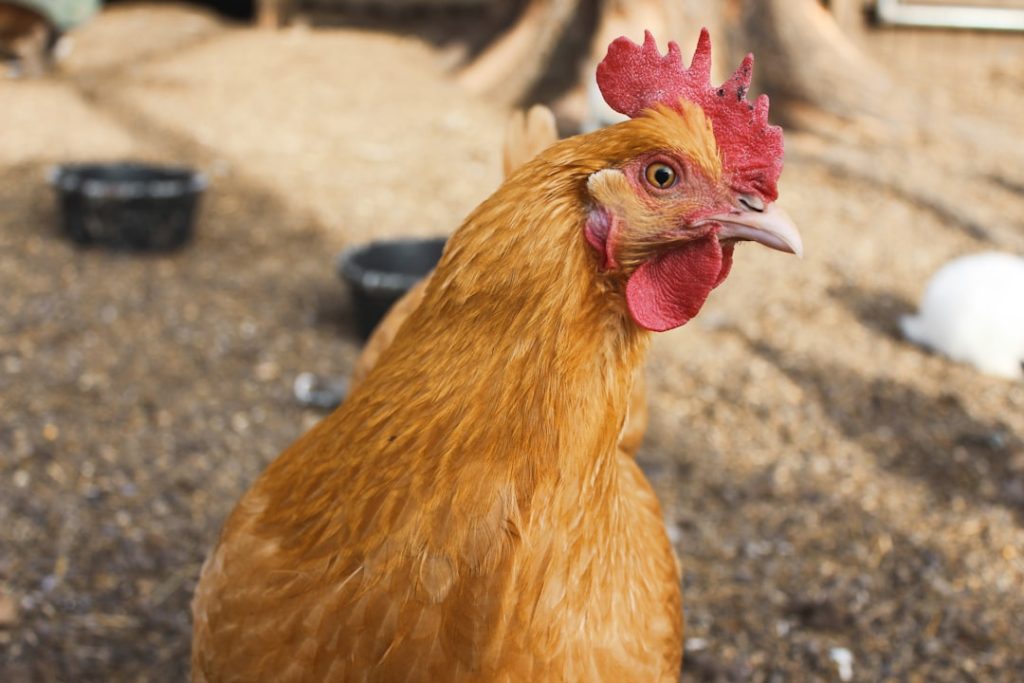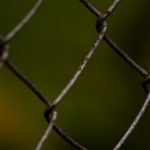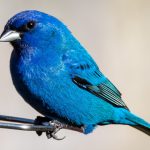Continuous access to food is essential for the health and well-being of chickens. As omnivores, chickens require a balanced diet with various nutrients to support growth, egg production, and overall health. Without constant food availability, chickens may experience stress, malnutrition, and decreased egg production.
Access to food also allows chickens to engage in natural foraging behaviors, which is crucial for their mental and physical stimulation. Continuous food access is particularly important for young chickens, as they need consistent nutrients to support rapid growth and development. Lack of food access can lead to stunted growth and developmental issues in chicks.
Additionally, constant food availability helps maintain a healthy flock dynamic by preventing aggressive pecking and bullying behaviors that may arise from competition over limited food resources. In summary, continuous access to food is vital for the overall health, growth, and well-being of chickens throughout their lives.
Table of Contents
- 1 The Nutritional Needs of Chickens and How Continuous Access to Food Meets Them
- 2 The Benefits of Allowing Chickens to Graze and Forage for Food
- 3 Potential Drawbacks of Keeping Food Out for Chickens All the Time
- 4 Tips for Properly Managing and Monitoring Food Availability for Chickens
- 5 How to Ensure Food Safety and Prevent Spoilage in Chicken Feed
- 6 The Best Practices for Providing Continuous Access to Food for Chickens
- 7 FAQs
- 7.1 What is the importance of keeping food out for chickens all the time?
- 7.2 What type of food should be kept out for chickens all the time?
- 7.3 How much food should be kept out for chickens all the time?
- 7.4 Are there any potential drawbacks to keeping food out for chickens all the time?
- 7.5 What are some tips for keeping food out for chickens all the time?
Key Takeaways
- Continuous access to food is crucial for the health and well-being of chickens, as it ensures they have the energy and nutrients they need to thrive.
- Providing continuous access to food meets the nutritional needs of chickens, supporting their growth, egg production, and overall health.
- Allowing chickens to graze and forage for food has numerous benefits, including providing them with natural enrichment, exercise, and a diverse diet.
- Potential drawbacks of keeping food out for chickens all the time include attracting pests and rodents, as well as the risk of overeating and obesity in chickens.
- Properly managing and monitoring food availability for chickens is essential to ensure they have access to fresh, clean food without wastage or spoilage.
- Ensuring food safety and preventing spoilage in chicken feed involves storing feed in a cool, dry place and regularly inspecting for signs of mold or pests.
- In conclusion, the best practices for providing continuous access to food for chickens involve balancing their nutritional needs with proper management and monitoring to ensure their health and well-being.
The Nutritional Needs of Chickens and How Continuous Access to Food Meets Them
Nutritional Components of a Balanced Diet
Carbohydrates provide energy for daily activities, while fats are essential for maintaining healthy skin and feathers. Additionally, vitamins and minerals play a crucial role in supporting various bodily functions and overall health.
The Importance of Continuous Access to Food
Continuous access to food allows chickens to meet their nutritional needs by providing a consistent source of essential nutrients. Whether through commercial feed or natural foraging, continuous access to food ensures that chickens have the opportunity to consume a balanced diet that meets their specific nutritional requirements. This is particularly important for egg-laying hens, as a lack of essential nutrients can lead to reduced egg production and poor egg quality.
Supporting Natural Behaviors
Furthermore, continuous access to food supports the natural foraging behaviors of chickens, allowing them to supplement their diet with insects, plants, and other natural sources of nutrition. This not only provides additional nutrients but also contributes to the mental and physical stimulation of the chickens. Foraging allows chickens to exhibit natural behaviors and helps prevent boredom and stress, ultimately contributing to their overall health and well-being.
Conclusion
In summary, continuous access to food plays a crucial role in meeting the nutritional needs of chickens and supporting their natural behaviors.
The Benefits of Allowing Chickens to Graze and Forage for Food

Allowing chickens to graze and forage for food offers numerous benefits for their health and well-being. Grazing and foraging allow chickens to supplement their diet with natural sources of nutrition, including insects, plants, and seeds. This natural diet provides essential nutrients and contributes to the overall health of the chickens.
Additionally, allowing chickens to graze and forage supports their natural behaviors, which is essential for their mental and physical stimulation. Furthermore, grazing and foraging can help reduce feed costs for chicken owners. By allowing chickens to supplement their diet with natural sources of nutrition, owners can reduce their reliance on commercial feed, ultimately saving money on feed expenses.
Additionally, allowing chickens to graze and forage can contribute to a more sustainable approach to chicken keeping by reducing the environmental impact of commercial feed production. Overall, allowing chickens to graze and forage for food offers numerous benefits for their health, well-being, and the environment. In addition, allowing chickens to graze and forage can contribute to the overall health of the soil and vegetation in their environment.
As chickens scratch and peck at the ground, they help aerate the soil and control insect populations. Their droppings also provide valuable nutrients for the soil, contributing to its fertility. This symbiotic relationship between chickens and the environment supports a more holistic approach to chicken keeping that benefits both the chickens and their surroundings.
In summary, allowing chickens to graze and forage for food offers numerous benefits for their health, well-being, and the environment.
Potential Drawbacks of Keeping Food Out for Chickens All the Time
While continuous access to food is essential for the health and well-being of chickens, there are potential drawbacks that chicken owners should be aware of. One potential drawback is the risk of overfeeding, which can lead to obesity and related health issues in chickens. Overfeeding can also result in excessive waste and increased feed costs for chicken owners.
Additionally, keeping food out all the time may attract pests such as rodents and insects, which can pose health risks for both the chickens and their owners. Furthermore, keeping food out all the time may lead to spoilage if proper storage and management practices are not followed. Spoiled feed can pose health risks for chickens and may result in reduced feed intake or refusal to eat altogether.
Additionally, spoiled feed can attract mold and harmful bacteria, which can lead to illness or digestive issues in chickens. It is important for chicken owners to monitor feed consumption and regularly inspect feed storage areas to prevent spoilage and ensure the safety of the feed provided to their chickens. In summary, while continuous access to food is essential for the health of chickens, there are potential drawbacks that should be considered and managed by chicken owners.
Another potential drawback of keeping food out all the time is the risk of attracting unwanted wildlife or predators to the chicken coop or run. Open access to food can attract animals such as raccoons, opossums, or even larger predators like foxes or coyotes. These animals may pose a threat to the safety of the chickens or their eggs.
Additionally, open access to food can attract wild birds that may carry diseases or parasites that could be transmitted to the flock. It is important for chicken owners to consider these potential risks when providing continuous access to food and take measures to minimize the attraction of unwanted wildlife or predators.
Tips for Properly Managing and Monitoring Food Availability for Chickens
Properly managing and monitoring food availability is essential for ensuring the health and well-being of chickens. One important tip is to provide a balanced diet that meets the specific nutritional needs of the chickens at each stage of life. This may include commercial feed supplemented with natural sources of nutrition through grazing and foraging.
Additionally, it is important to monitor feed consumption and adjust feeding practices as needed to prevent overfeeding or spoilage. Furthermore, it is important to implement proper storage practices to prevent feed spoilage and reduce the attraction of pests. This may include using airtight containers or bins to store feed, as well as regularly inspecting storage areas for signs of spoilage or pest activity.
Additionally, it is important to regularly clean feeding equipment and areas to prevent the buildup of mold or harmful bacteria that could pose health risks for the chickens. Another tip is to consider using feeders that minimize waste and reduce the attraction of pests. For example, treadle feeders or hanging feeders can help prevent spillage and reduce the risk of attracting rodents or insects.
Additionally, it is important to monitor feed consumption and adjust feeding practices as needed based on the size and appetite of the flock. By properly managing and monitoring food availability, chicken owners can ensure the health and well-being of their flock while minimizing potential drawbacks associated with continuous access to food.
How to Ensure Food Safety and Prevent Spoilage in Chicken Feed

Regular Inspection and Removal of Spoiled Feed
Regularly inspecting feed storage areas for signs of spoilage or pest activity is essential. This includes checking for mold, unusual odors, or signs of insect infestation. If any signs of spoilage are detected, it is vital to promptly remove the affected feed and clean the storage area thoroughly.
Proper Storage and Handling of Feed
Storing feed in a cool, dry place away from direct sunlight is crucial. Exposure to heat and moisture can contribute to spoilage by creating an environment conducive to mold growth and bacterial contamination. Using airtight containers or bins can help protect feed from environmental factors that could lead to spoilage.
Cleaning Feeding Equipment and Monitoring Feed Consumption
Regularly cleaning feeding equipment such as troughs or feeders is essential to prevent the buildup of mold or harmful bacteria that could pose health risks for the chickens. This may include using mild detergents or disinfectants to clean feeding equipment thoroughly on a regular basis. Additionally, monitoring feed consumption regularly and adjusting feeding practices as needed based on the size and appetite of the flock can help prevent spoilage and ensure the safety of the feed provided to the flock.
The Best Practices for Providing Continuous Access to Food for Chickens
In conclusion, providing continuous access to food is essential for meeting the nutritional needs of chickens and supporting their overall health and well-being. Whether through commercial feed or natural sources of nutrition obtained through grazing and foraging, continuous access to food ensures that chickens have a balanced diet that meets their specific nutritional requirements. Additionally, allowing chickens to graze and forage supports their natural behaviors while offering benefits such as reduced feed costs and environmental sustainability.
While there are potential drawbacks associated with keeping food out all the time, proper management and monitoring practices can help mitigate these risks. By providing a balanced diet that meets the specific nutritional needs of the flock at each stage of life, implementing proper storage practices, using feeders that minimize waste and reduce pest attraction, regularly cleaning feeding equipment, monitoring feed consumption, chicken owners can ensure the health and well-being of their flock while preventing spoilage in chicken feed. Overall, providing continuous access to food is essential for meeting the nutritional needs of chickens while supporting their natural behaviors and overall health.
By following best practices for managing food availability and ensuring food safety in chicken feed, chicken owners can promote the health and well-being of their flock while minimizing potential drawbacks associated with continuous access to food.
If you’re considering keeping chickens, it’s important to provide them with constant access to food. According to a recent article on Poultry Wizard, keeping food out for chickens all the time can help ensure they have a steady supply of nutrients and energy to support their health and egg production. This is especially important during the winter months when foraging opportunities may be limited. For more information on keeping chickens healthy and well-fed, check out this article on the ideal coop size for chickens.
FAQs
What is the importance of keeping food out for chickens all the time?
Keeping food out for chickens all the time is important because it ensures that they have access to a constant supply of nutrients, which is essential for their health and well-being. It also helps to prevent issues such as pecking and aggression that can arise when chickens are hungry.
What type of food should be kept out for chickens all the time?
Chickens should have access to a balanced diet that includes a combination of grains, seeds, and commercial poultry feed. Additionally, they should have access to grit and oyster shell for calcium and digestion.
How much food should be kept out for chickens all the time?
The amount of food that should be kept out for chickens will depend on the size of the flock and their individual needs. As a general rule of thumb, it’s recommended to provide enough food to last the chickens throughout the day, ensuring that they always have access to a fresh supply.
Are there any potential drawbacks to keeping food out for chickens all the time?
One potential drawback of keeping food out for chickens all the time is the risk of attracting pests such as rodents and insects. It’s important to manage the feeding area to minimize the risk of attracting unwanted visitors.
What are some tips for keeping food out for chickens all the time?
Some tips for keeping food out for chickens all the time include using feeders that minimize waste, storing feed in airtight containers to prevent spoilage, and regularly cleaning the feeding area to maintain hygiene. Additionally, monitoring the chickens’ food intake and adjusting the amount of food provided as needed can help ensure they are getting the right amount.
Meet Walter, the feathered-friend fanatic of Florida! Nestled in the sunshine state, Walter struts through life with his feathered companions, clucking his way to happiness. With a coop that’s fancier than a five-star hotel, he’s the Don Juan of the chicken world. When he’s not teaching his hens to do the cha-cha, you’ll find him in a heated debate with his prized rooster, Sir Clucks-a-Lot. Walter’s poultry passion is no yolk; he’s the sunny-side-up guy you never knew you needed in your flock of friends!







